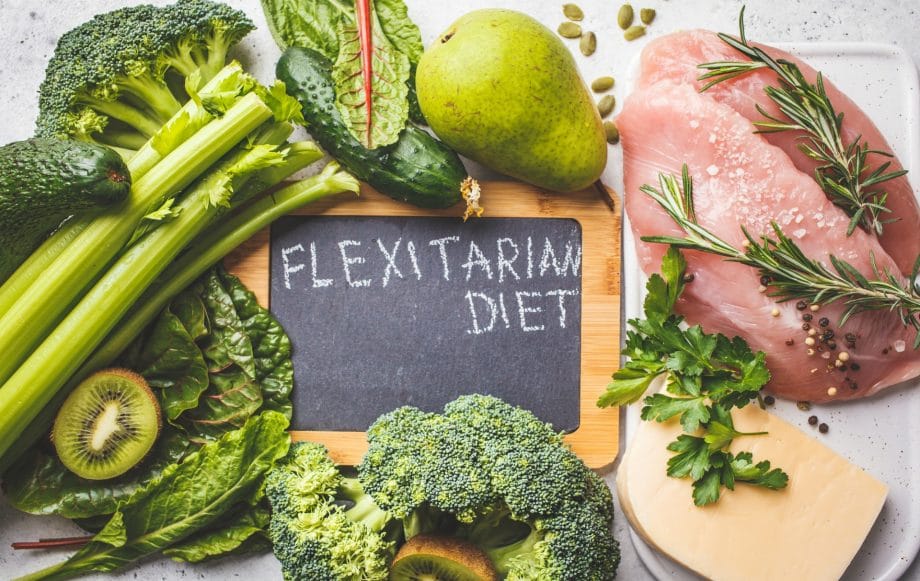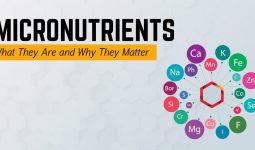A flexitarian is a person whose food comprise mostly of plant-based foods, but allows the eating of meat and animal products in moderate form.
This means, flexitarian is more flexible than a vegan or vegetarian diet that doesn’t allow for meat and other animal products.
If you don’t want to completely cut out meat from your diet, but want to focus more on plant foods to your diet, then flexitarian diet is for you.
What is a flexitarian diet?
Dietitian Dawn Jackson Blatner created a flexitarian diet to help people get the benefits of eating vegetables, while still eating meat and animal products, but in moderation. Hence the name “flexitarian”, is that the diet is flexible to suit a person’s food interest.
They are also not labeled vegans or vegetarians since they eat meat and other animal products.
Also, the diet doesn’t follow a particular rule or a recommended number of calories that a person must maintain. In fact, flexitarian is considered a lifestyle more than it’s seen as a diet.
Principles of a flexitarian diet is based on some of the following
- Your source of protein should be from plant-based foods rather than from animals.
- Consume more of fruits, whole grains, legumes, and vegetables.
- Add meat and animal products from time to time to incorporate flexibility in your diet.
- Minimize your sweets and sugar intake.
- Avoid processed food and go for natural foods instead.
Note that, the amount of meat consumed differ from person to person but the ultimate goal is to make sure you eat more plant-based foods and less animal products or meat.
Possible benefits of a flexitarian diet
Flexitarians benefit from their diets in several ways, nonetheless, since a clear definition of this diet hasn’t been established yet. It becomes difficult to determine how and if studied benefits of other plant-based diets applies to a flexitarian diet.
The good news however, is that we can easily see some health benefits of being a vegan or a vegetarian. Since flexitarian diet is closely connected to vegan and vegetarian, there is no doubt that the benefits being a flexitarian are also as effective.
As long as your comprise of mostly plant-based foods more than animal, then you get to reap all the benefits of a flexitarian diet.
Also, it is important to note that while minimizing consumption of meat and animal products, the same benefits might not be gotten if you continue to eat refined foods with plenty of sugar and salts.
Heart disease
Diets rich in healthy fats and fiber are beneficial for heart health. A study carried out over the space of 11 years, involving 45,000 adults, discovered that vegetarians were at 32% lesser risk of having heart complications or diseases, compared to people who aren’t vegetarians.
This is possibly because vegetarian diets are commonly rich in antioxidants and fiber that helps to minimize blood pressure and maximize good cholesterol.
A recent review on the toll of vegetarian diet on blood pressure showed that vegetarians a normal systolic blood pressure. This is almost 7 points lower than that of people who consume meat.
Since flexitarian diet is closely related to the vegetarian diet, then the health benefits are sure to be similar.
Weight loss
The waistline also benefits a lot from flexitarian diet. This is because processed foods and foods rich in calories are limited.
Some studies also shows that people who adopt a plant-based diet shed more weight than people who do not. Also, chances of having cancer is considerably reduced by incorporating plant-based foods in your diet.
Some foods to eat regularly as a flexitarian
While minimizing meat and animal products, flexitarian diet focuses on plant proteins and other whole plant foods that are minimally processed. Some of these foods include;
- Protein: Tofu, soybeans, legumes, tempeh, lentils.
- Starchy vegetables: Peas, corn, winter squash, sweet potatoes.
- Non-starchy vegetables: Bell peppers, greens,green beans, carrots, Brussels sprouts, cauliflower.
- Fruits: Oranges, apples, grapes, berries, cherries.
- Healthy fats, nuts and seeds: Flaxseeds, almonds, walnuts, chia seeds, cashews, coconuts, pistachios, avocados, olives, peanut butter.
- Whole grains: Farro, buckwheats, quinoa, tiff.
- Spices, seasonings and herbs: Mint, oreganos, basil, cumin, thyme, ginger, turmeric.
- Plant-based milk: Coconut, hemp, soy milk, unsweetened almond.
- Beverages: Coffee, tea, still and sparkling water.
- Condiments: Nutritional yeast, salsa, apple cider vinegar,mustard, ketchup (without sugar added), low-sodium soy sauce.
When adding animal products into your diet, choose from the following;
- Oily fish
- Organic dairies
- Meat from pastured or grass-fed animals
- Pastured-raised and organic poultry
Some of the foods that should be less consumed in a flexitarian diet include;
- Sweets and added sugar: Donuts, soda, candy, cakes, cookies.
- Processed meat: Sausages, bacon, bologna.
- Carbs (refined): White rice, bagels, white bread, croissants.
- Fast food: Milkshakes, burgers, fries, chicken nuggets.
You may decide to extremely minimize your consumption of meat and it all depends on your preference, but ensure you focus more on plant-based foods. You can consult with a dietitian to best advise you on the right foods to supply you with he right nutrient.
It is very critical that you outline your choice of foods if you want to be a flexitarian to prevent deficiencies in nutrients.
Are you a flexitarian? What foods do you consume? How are you benefiting from being a flexitarian? Share with us in the comments below.









